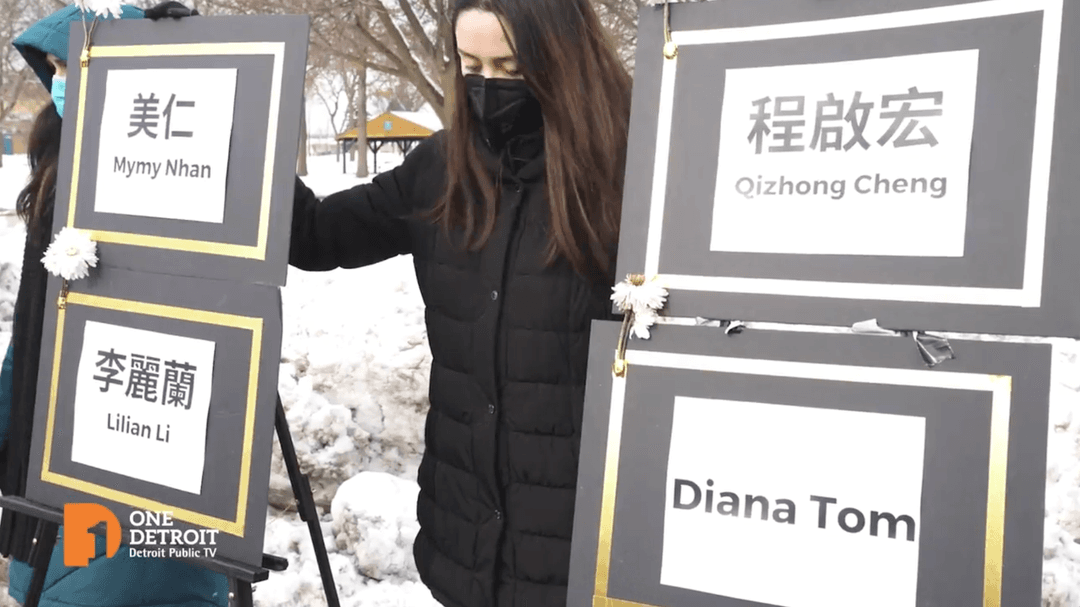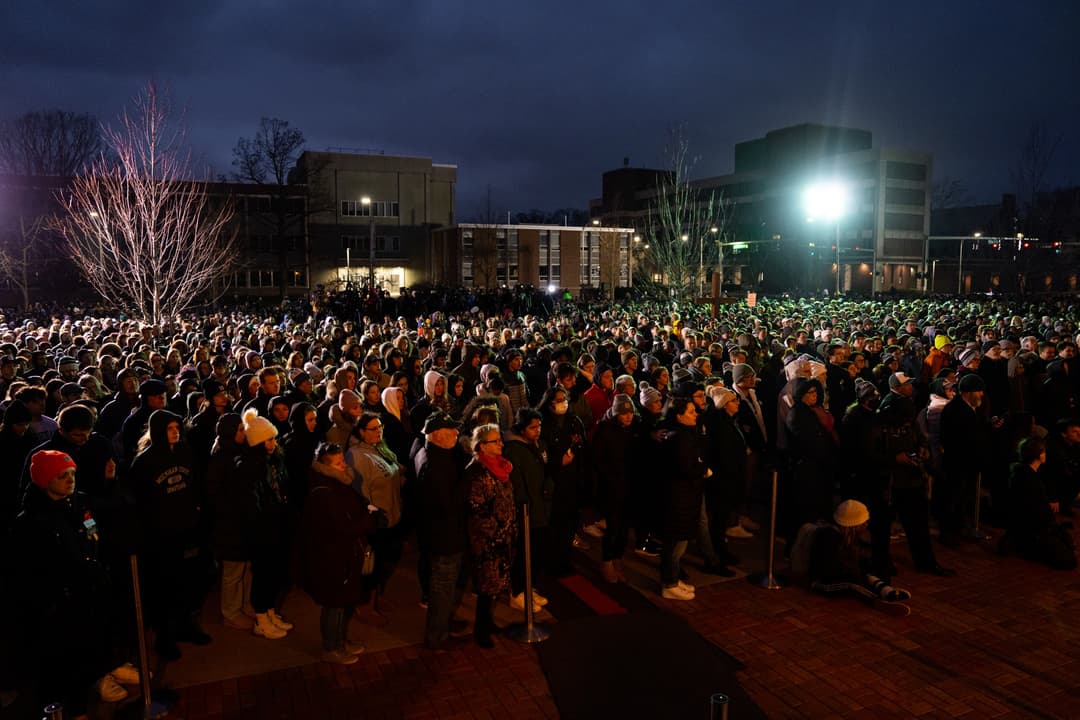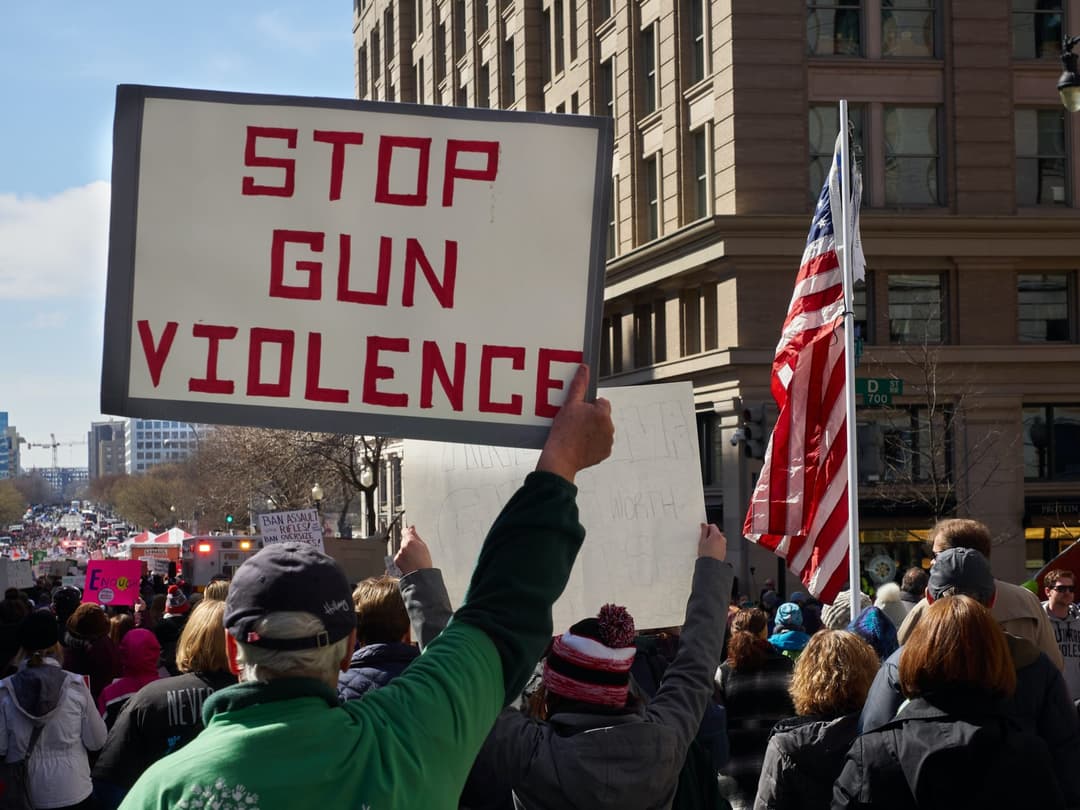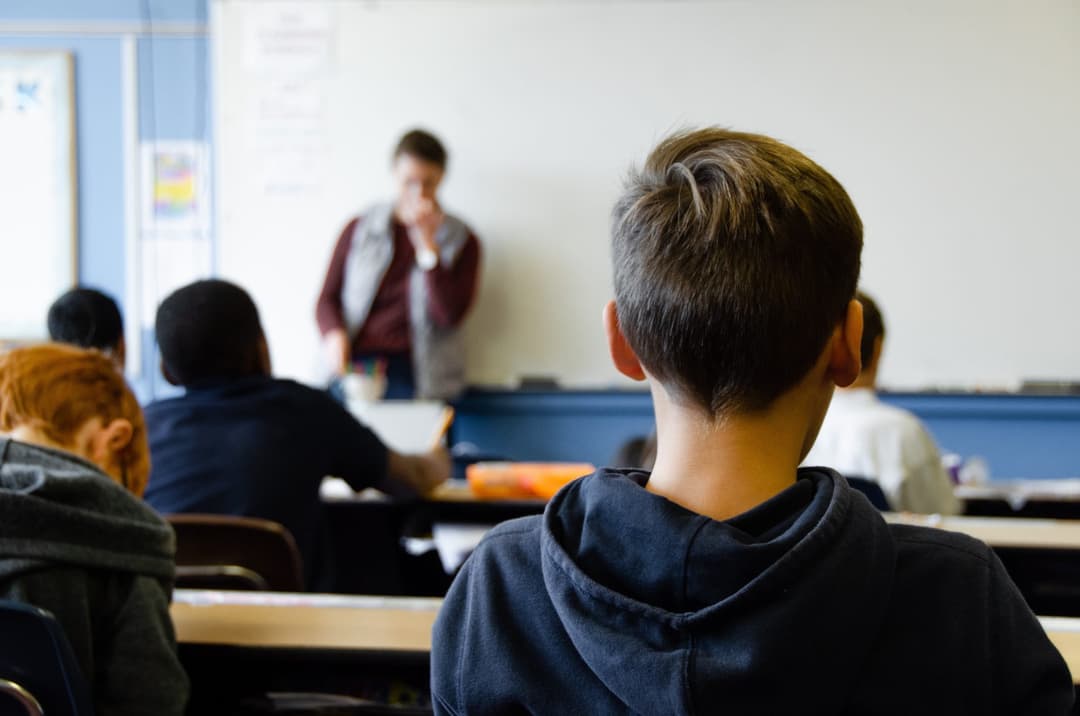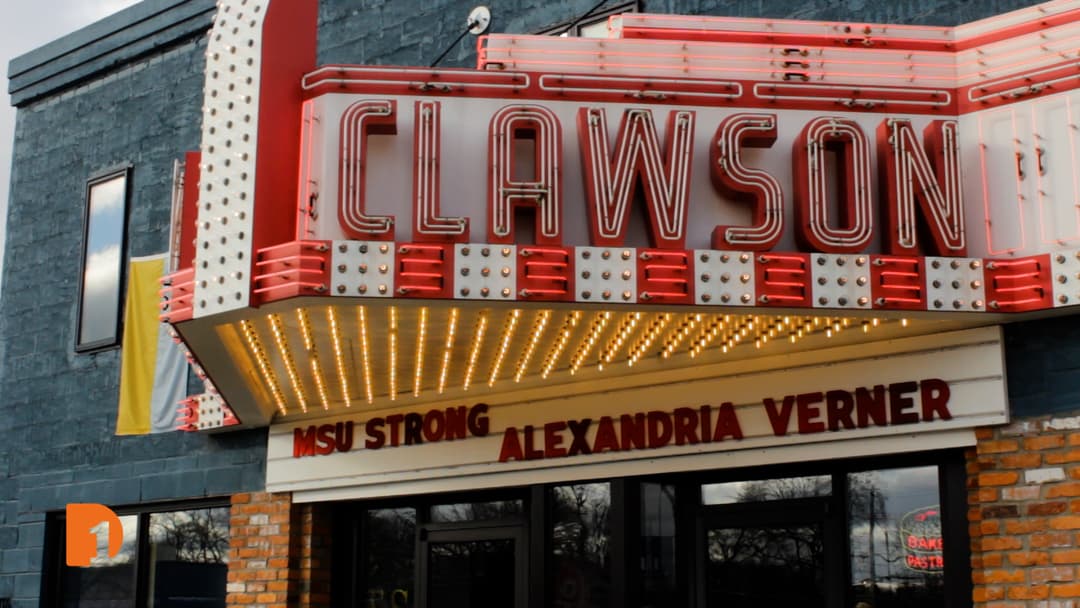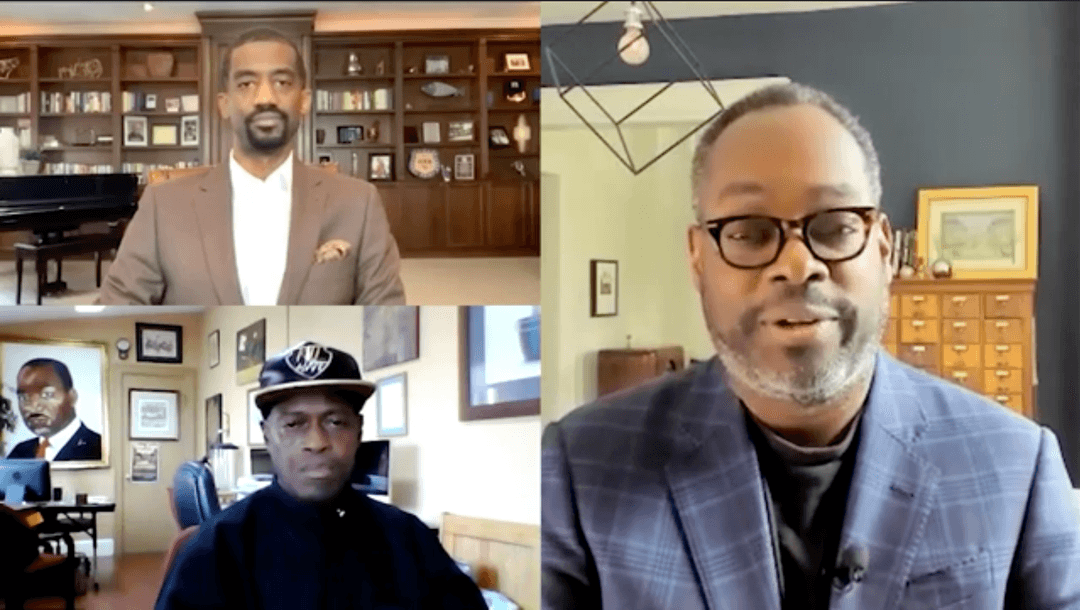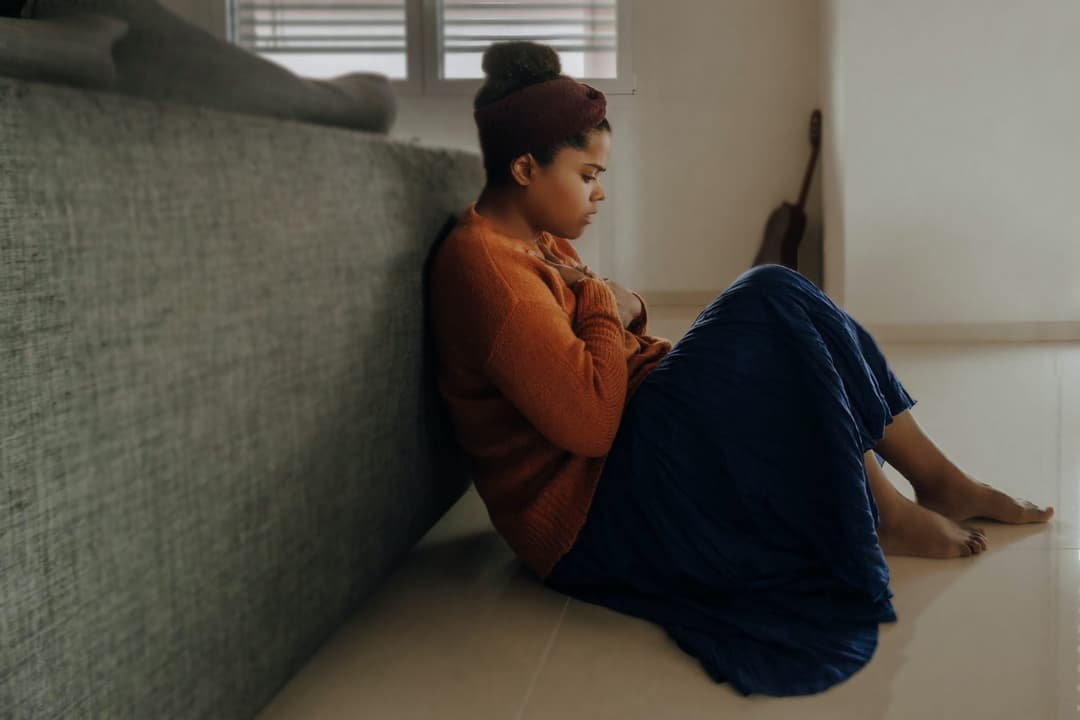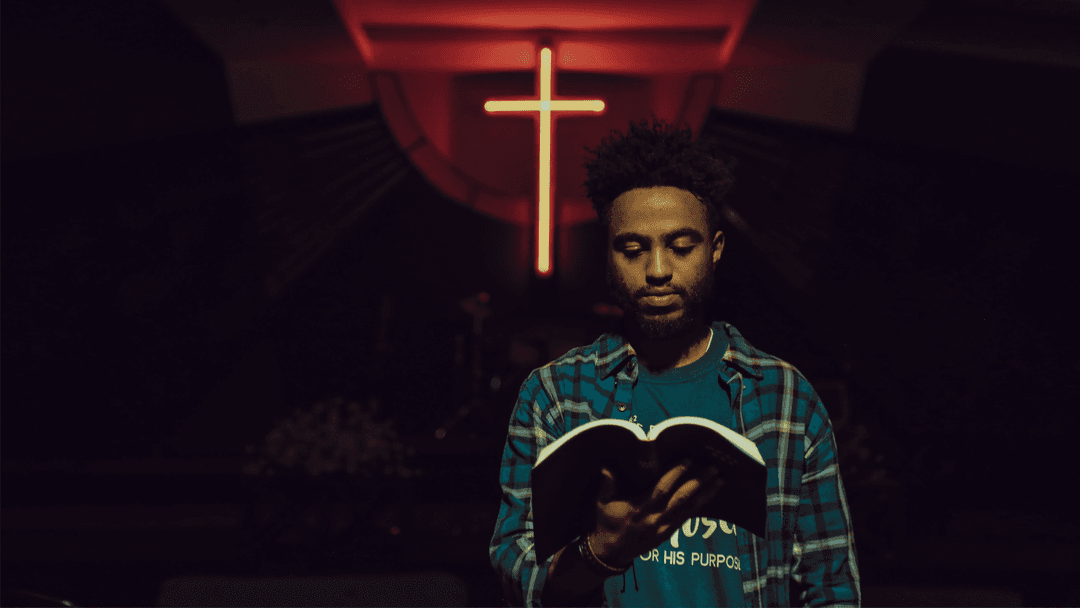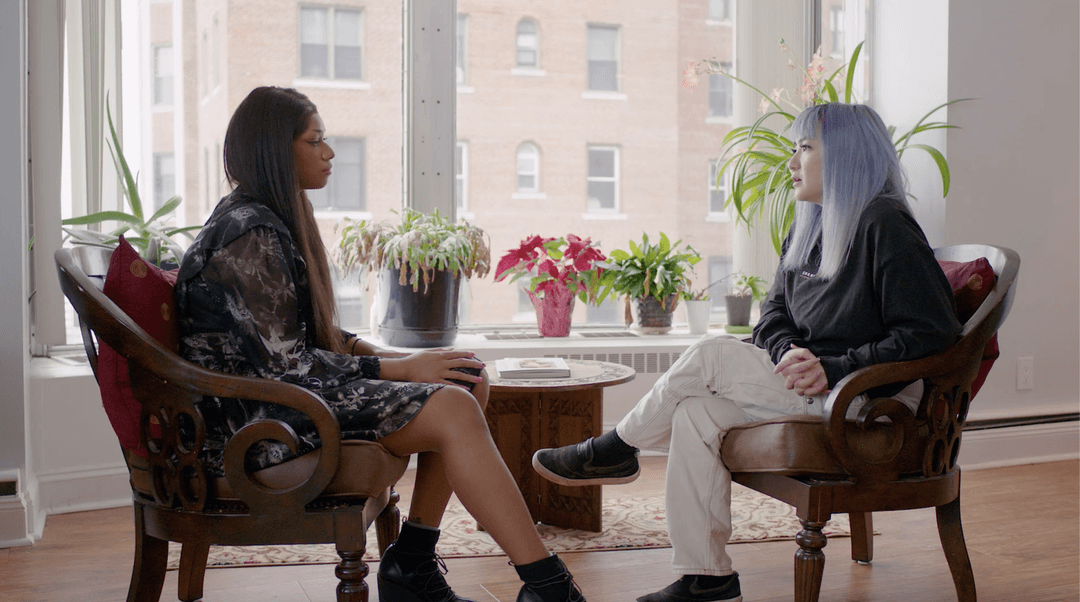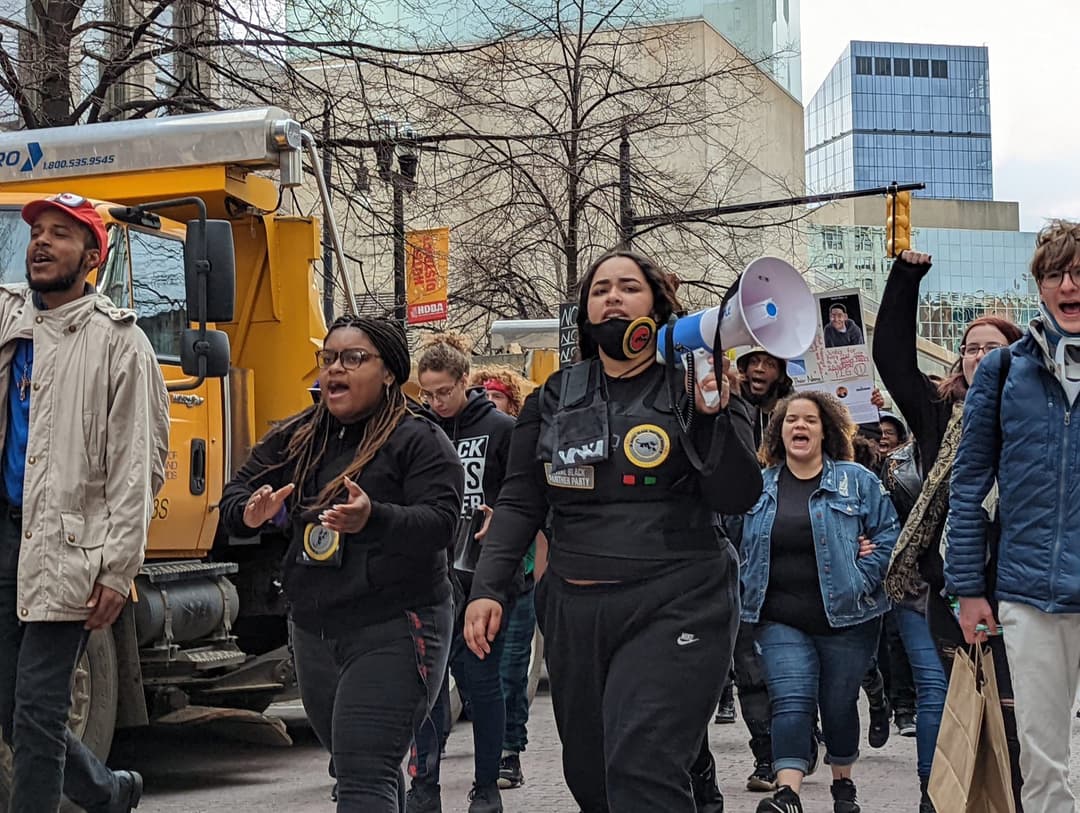Healing from tragedy: How MSU moves forward after mass shooting kills three, injures five
Feb 20, 2023
One Detroit contributor Stephen Henderson spent Monday night, Feb. 13, like most other Michigan State University parents, checking on the safety of their children after a gunman entered two university buildings and began firing at people.
The tragedy began around 8:18 p.m., after which a manhunt ensued for roughly four hours before law enforcement located the gunman a few miles off campus in Lansing. Three students — Alexandria Verner of Clawson, Brian Fraser of Grosse Pointe, and Arielle Anderson of Harper Woods — were slain by the gunman, and 5 others were hospitalized. The 43-year-old gunman Anthony Dwayne McRae also died from a self-inflicted gunshot wound the night of the shooting. He had no affiliation with the university.
As parents, students, staff, alumni and the entire country begin to grapple with and heal from this tragedy, Henderson sat down with Dr. Lekie Dwanyen, an associate professor at Michigan State University’s department of human development and family studies, to hear how the MSU community is coping.
RELATED: Helpful Resources for Coping After A School Shooting
They talk about the traumatic emotions and changes people impacted by the violence may feel in the wake of this tragedy, as well as opportunities happening on campus to help students come together, heal and memorialize the victims. Plus, they talk about the frequency of mass shootings in our society and the impact that has on younger generations.
Full Transcript:
Stephen Henderson, @SHDetroit: I’m a parent at Michigan State University, and I spent, you know, Monday night doing what every other parent was doing, trying to make sure my kid was safe. I just want to have you start by talking about the atmosphere on campus. The things you’re hearing from students about what happened and how they’re feeling. The effects of this, I think, are immeasurable on the people who are part of the MSU community.
Dr. Lekie Dwanyen, Assistant Professor, MSU Dept. of Human Development & Family Studies: You’re absolutely right, Stephen. My sense of the emotional energy and climate on campus is that students, faculty, staff, anybody who is affiliated with MSU, whether we were present there at the time or not, is experiencing a high level of distress. We are emotionally experiencing fear, anxiety, worries of what this means for the families that are directly impacted, how we can support one another as we cope with high levels of stress from this shooting.
So the emotional climate is very, very tense, but it also is very supportive. We have several opportunities that are arising to convene as a community and really try to form some understanding together around what happened and memorialize the lives that were lost as much as we really can, in this moment.
Stephen Henderson: Yeah. The kind of trauma that people experience when something like this happens is, I think, you know, analogous to other really violent situations that most people don’t experience. Right. War and those kinds of conflicts.I really wonder how outside the context of something like that you deal with this kind of trauma. How do you treat students, young people who are experiencing something that most young people still thank God would never experience?
Dr. Lekie Dwanyen: You know, when we experience events like this, even if we’re exposed to the event virtually, we can experience a number of traumatic stress reactions that, again, are normal based on the way that we have to kind of metabolize this information or the experience. Right. So, we might feel more jumpy or startled immediately after events like this. Or for a period of time we might not feel our sleep routine normalize. We might get less sleep than we’re used to. We might want to for children, for example, we might see our children want to sleep closer to us or have a closer proximity.
So we might also feel symptoms like being unable to eat in the same ways that we normally do. Our digestive systems are impacted, and so we want to give ourselves and our children a lot of flexibility and a lot of grace in these days following this event. And for a period of time after you want to be checking in, checking in with ourselves, asking how we’re feeling, trying to verbalize it, and allowing children and students the opportunity to verbalize how they’re feeling as well. And we want to validate ourselves and validate each other, because however we’re feeling right now, is normal to such an abnormal event.
Stephen Henderson: So I want to talk a little bit about that word normal in two different ways. One, of the things that I detected from my son when this happened, was a sense that this is just the way the world is now. And he’s never been associated with a shooting like this, but they are happening with more frequency. And of course, he knows about it. That bothered me. It bothered me that he didn’t seem more bothered. And I wonder what were to make of that. That we are raising a generation of young people who think of this as more acceptable or just they make way for it in a way that I think should disturb us.
Dr. Lekie Dwanyen: Yes. And I would agree with you. When we look at our societal context and we see how common these events are, unfortunately, we can understand how youth and college students are not necessarily surprised by the event. We saw students at Michigan State with paraphernalia supporting other schools that had just recently experienced shootings. There are students here that have experienced school shootings before. And so there is an element of this that is more common, but it’s not normal.
When I say normal, I’m talking about our individual and our relational reactions to the traumatic event in that whatever we’re feeling right now or however we’re hoping or however we feel our routine disrupted, we should normalize that for one another. You know, if you’re having bad dreams, if you’re feeling more startled, or if you’re feeling more irritable about things that normally didn’t irritate you before. Those are normal reactions. And so we want to offer ourselves a lot of flexibility in these moments after the shooting.
Stephen Henderson: And the other way I want to talk about that word normal is. How do we get back to normal? The normal that we knew before this? How do you make that pivot away from the trauma of this incident to a more normal state of of interaction and being on campus?
Dr. Lekie Dwanyen: Yes, that’s a great question. And I think the question of what is normal following this event has to be decided upon by our community and we will approach normal together, whatever that means. For this immediate period. It’s really important that we allow ourselves the chance to just stabilize. And to just sit with however we’re feeling and whatever demands are on our plates right now in terms of taking care of each other that we honor that. And then we can discuss decision-making and moving forward through procedures as a community.
Stay Connected:
Subscribe to One Detroit’s YouTube Channel & Don’t miss One Detroit Mondays and Thursdays at 7:30 p.m. on Detroit PBS, WTVS-Channel 56.
Catch the daily conversations on our website, Facebook, Twitter @DPTVOneDetroit, and Instagram @One.Detroit
View Past Episodes >
Watch One Detroit every Monday and Thursday at 7:30 p.m. ET on Detroit Public TV on Detroit Public TV, WTVS-Channel 56.
Stay Connected
Subscribe to One Detroit’s YouTube Channel and don’t miss One Detroit on Thursdays at 7:30 p.m. and Sundays at 9 a.m. on Detroit PBS, WTVS-Channel 56.
Catch the daily conversations on our website, Facebook, Twitter @OneDetroit_PBS, and Instagram @One.Detroit
Related Posts
Leave a Reply
Your email address will not be published. Required fields are marked*



